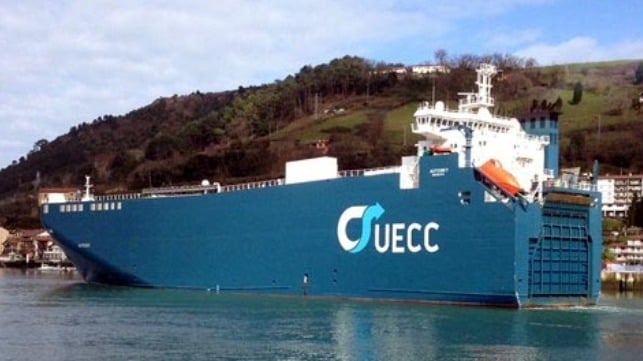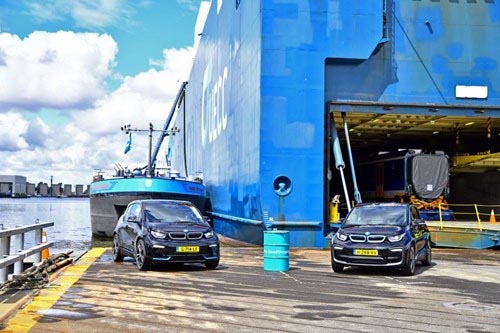BMW Joins Test of Biofuel on Ro-Ro Car Carriers for Reduction in CO2

Ongoing tests are exploring the use of biofuel oil on ro-ro car carriers as part of a program working to advance decarbonization tied to the transportation of freight at sea. The car manufacturer BMW Group is partnering with short sea shipowner UECC and the GoodShipping Program in the ongoing trials where BFO is being tested on UECC’s 140m, 2,080-vehicle carrier Autosky.
According to the partnership, this is an important step towards achieving a carbon-neutral supply chain for BMW and aligns with the core aim of the GoodShipping Program, which enables cargo owners to reduce their environmental footprint.
The GoodShipping Program requires shippers to commit to a reduction in their sea freight CO2 emissions. The initiative works on the premise that all CO2 from shipping is emitted into the same atmosphere. The program believes that the means of mitigating these emissions is equally impactful, regardless of which vessels adopt biofuels over traditional bunker fuels or the amount of 'drop-in' biofuel that is added to the fuel tank, as long as it offsets the CO2 costs of transporting the participating shipper's cargo.
By covering the fuel premium for a biofuel volume corresponding to BMW Group’s freight that will be shipped on the Autosky during the trial period, BMW Group will be able to claim a CO2 emission reduction of 80 to 90 percent for these shipments, totaling more than 400 tons of carbon.

BMW Group is joining the biofuel test on a car carrier - courtesy of UECC
“We are delighted to have BMW Group join us for continuing this pioneering trial of marine biofuel within the ro-ro segment,” said Anniek Sluis, Growth Captain at The GoodShipping Program. “Transportation logistics have a huge carbon impact, so the leadership shown by BMW Group to proactively take steps to decarbonize – and recognize that solutions are available – should act as a call for others in the sector to join us on this journey.”
The BFO – based on cooking oil – being used for this trial was supplied by GoodFuels. The marine biofuel ‘drops-in’ to normal fuel tanks, is virtually sulfur oxide (SOx) free and delivers 80 to 90 percent well-to-exhaust CO2 reduction versus fossil equivalents.
The BFO tests began with the first delivery of biofuel to the Autosky in the Port of Rotterdam during March. The BFO test is expected to continue through July 2020 with the vessel operating between Zeebrugge, Belgium, and Santander, Spain. It is hoped that BMW’s participation in the project will contribute to enabling the continuation of biofuel deliveries to UECC after the trial period and will demonstrate that second-generation advanced biofuels can be scaled to meet this demand.
“At UECC, we want to support our customers and enable them to make proactive, conscious choices about their cargo transportation,” said Daniel Gent, Energy and Sustainability Manager at UECC. “BMW Group’s participation to continue our trial on our ro-ro vessel M/V Autosky should, therefore, signal to the automotive sector that the means to decarbonize are readily available and that our vessels are equipped to meet this most important of challenges for the shipping industry.”
The partnership pointed out that the use of marine biofuel effectively allows shipowners and operators to comply with both new legislation around sulfur content for marine fuels, as well as future regulations on carbon reduction by 2030 and 2050.
